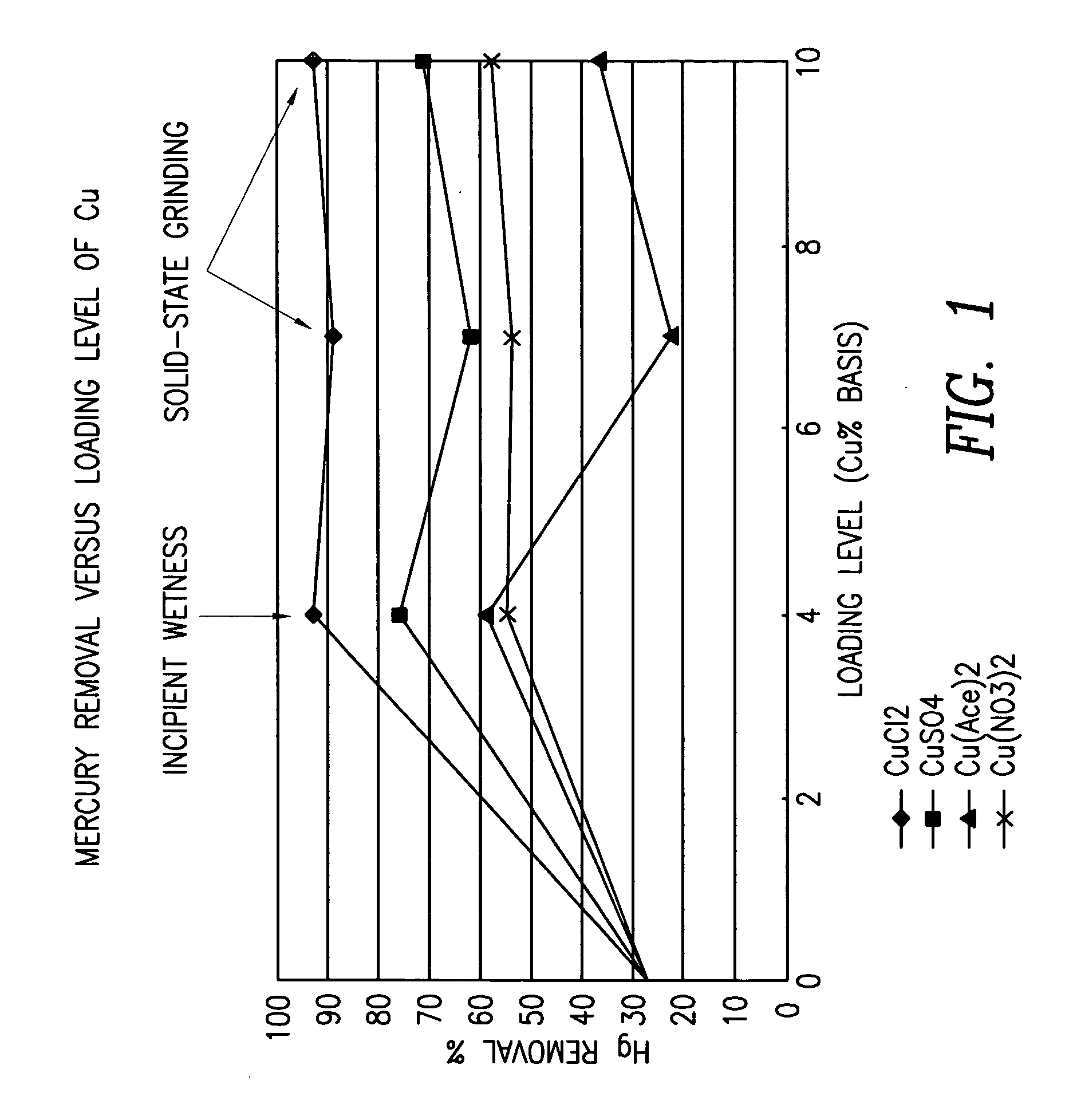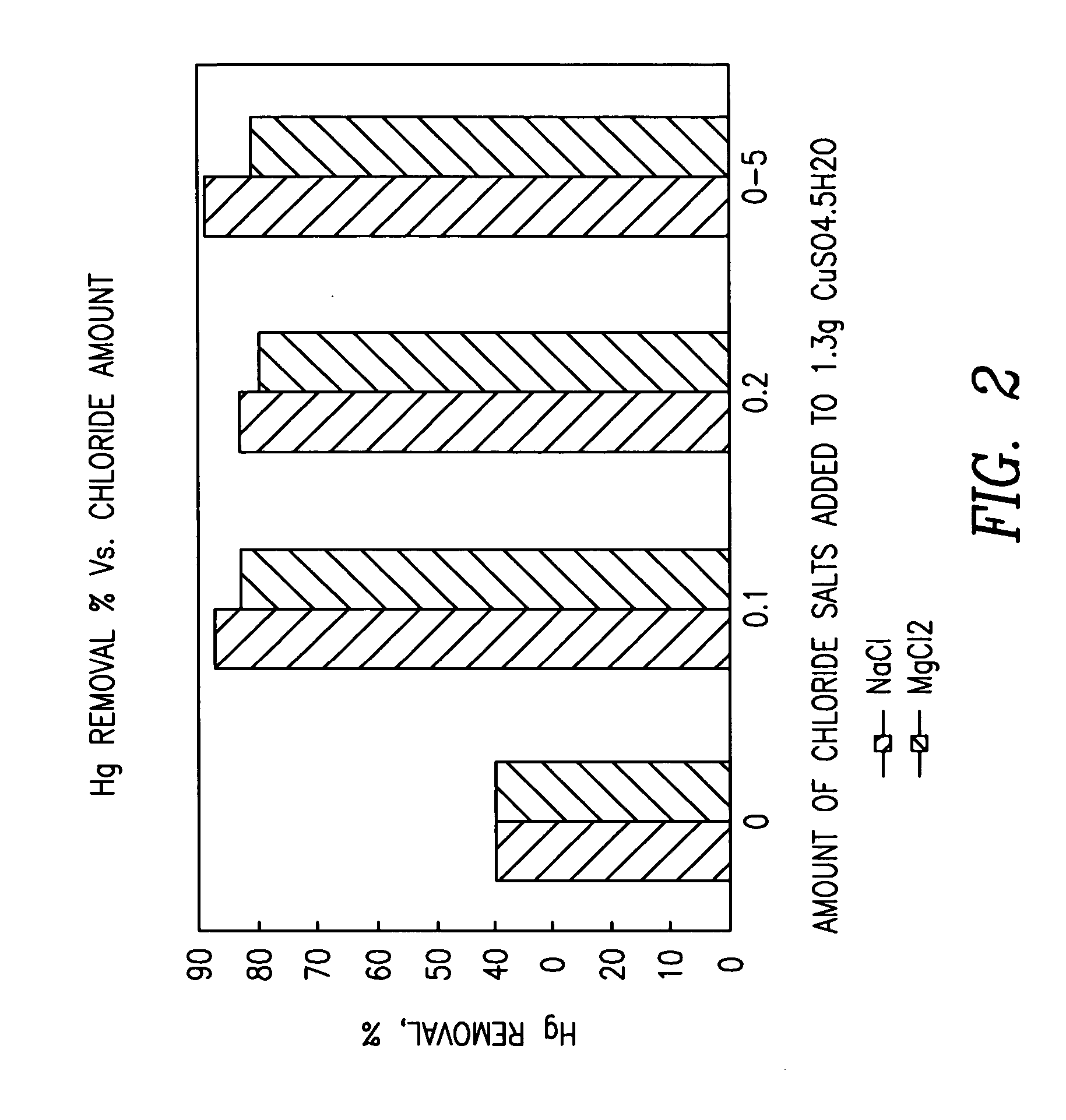Methods of manufacturing bentonite pollution control sorbents
- Summary
- Abstract
- Description
- Claims
- Application Information
AI Technical Summary
Benefits of technology
Problems solved by technology
Method used
Image
Examples
examples
[0026] Several samples were prepared in accordance with the methods for manufacturing sorbent substrates described above. Table 1 lists the sample number, the sulfide salt formed on the surface of the sorbent (D), the sorbent substrate (A), the metal salt (B), and the precursor sulfide salt (C). The last column of Table 1 indicates the order of mixing of each of the ingredients. For example, A-B-C indicates that the metal salt (B) was added to the substrate (A) first, and then precursor sulfide salt (C) was added to the mixture.
[0027] For example, sample ECS22, 1.18 g of CuCl2.2H2O was mixed with 10.0 g of bentonite by a thorough solid-state grinding. Then 1.67 g of Na2S.9H2O was dissolved in de-ionized water and added to the solid mixture by what is termed herein as an incipient wetness process, in which the solution was added drop-wise to the solid mixture which was stirred rigorously. The resultant moistened solid was wet enough to completely disperse CuS on the bentonite, but d...
PUM
| Property | Measurement | Unit |
|---|---|---|
| Temperature | aaaaa | aaaaa |
| Temperature | aaaaa | aaaaa |
| Percent by mass | aaaaa | aaaaa |
Abstract
Description
Claims
Application Information
 Login to View More
Login to View More - R&D
- Intellectual Property
- Life Sciences
- Materials
- Tech Scout
- Unparalleled Data Quality
- Higher Quality Content
- 60% Fewer Hallucinations
Browse by: Latest US Patents, China's latest patents, Technical Efficacy Thesaurus, Application Domain, Technology Topic, Popular Technical Reports.
© 2025 PatSnap. All rights reserved.Legal|Privacy policy|Modern Slavery Act Transparency Statement|Sitemap|About US| Contact US: help@patsnap.com


